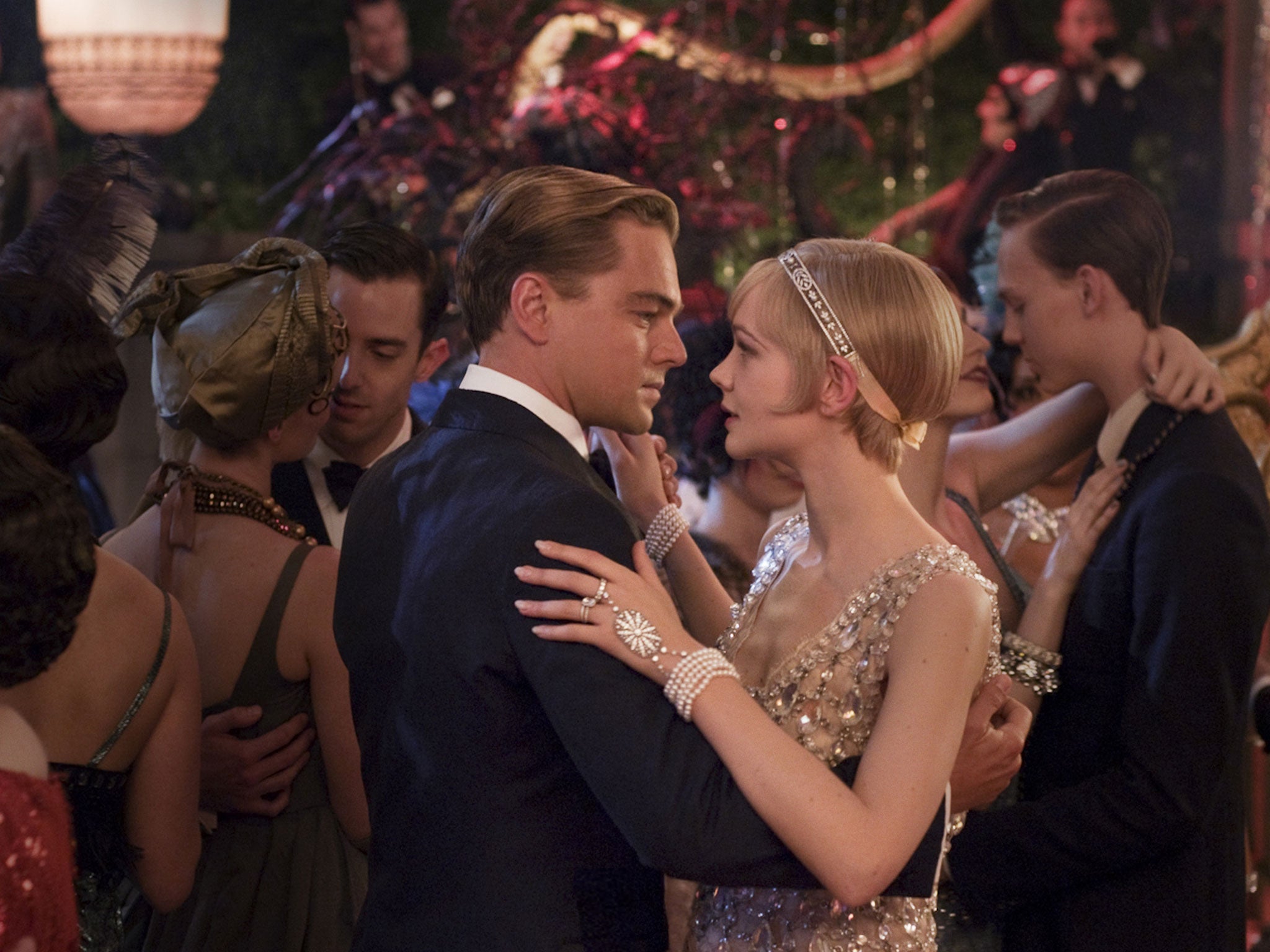The Great Gatsby review: Long, gaudy and flawed, but there is much to admire in Baz Luhrmann’s stonking lack of subtlety
Leonardo DiCaprio segues with utter conviction in the title role, from the suave, semi-mythical party host to his neurotic, lovelorn alter ego and back again

Any great book’s transition to the screen is greeted with a degree of sanctimony, but perhaps none more so than The Great Gatsby, the title most frequently deemed the Great American Novel.
Every reader of F Scott Fitzgerald’s celebrated 1925 work has an idea of how it ought to be filmed, and many think it ought not to be filmed at all. So who better to adapt this revered classic than Hollywood’s least pious director, Baz Luhrmann? Few will be shocked to learn that Luhrmann’s version of Fitzgerald’s short, spare, near-perfect novel is long, gaudy and flawed. If you don’t care for his previous films, you’ll find little in the way of pleasant surprises here. But if you can abide the Australian’s lurid, hyperactive style, then there is much to admire nonetheless.
Written and set in the Roaring Twenties, Gatsby tells the story of a man who ruthlessly chases wealth, ultimately in pursuit of love, only to learn that one can’t buy the other. Luhrmann’s taste is as garish as his hero’s, and for much of its running time, his film is an intoxicating cocktail of colour, lights and noise: outlandish party scenes, fantastical New York cityscapes. It is crass and superficial – and, yes, it’s often difficult to decide whether the director is exposing the hollowness of the era’s decadence, or simply fetishising the suits.
Fitzgerald’s prose is first introduced as a voiceover, explained by establishing scenes of Tobey Maguire as narrator Nick Carraway, whom Luhrmann portrays as an alcoholic in rehab, typing his recollections on the advice of a kindly therapist. At times the text literally appears onscreen, super-imposed, as if to assure us of the director’s adherence to his source material. In many instances, sentences from the book are edited and employed reverently and skilfully by Luhrmann and his co-writer Craig Pearce. But when the screenwriters insert their clunky attempts to emulate Fitzgerald’s lyricism, the disparity is surely audible, even to those who haven’t read the original.
There is further evidence of Luhrmann’s stonking lack of subtlety in the title character’s first appearance onscreen, which comes accompanied by the climactic bars of Gershwin’s “Rhapsody in Blue”. Is there any more blundering signifier of the Jazz Age? The musical selections – a mix of period pieces and contemporary mash-ups – are only intermittently successful. Notably, Lana Del Rey’s track, “Young and Beautiful”, is put to good effect on more than one occasion, to accompany the deterioration of Daisy and Gatsby’s romance.
The cast is strong and cohesive, with Carey Mulligan maintaining just the right level of shallowness in her portrayal of Daisy, and Joel Edgerton entirely convincing as her rich, racist, bullying husband Tom Buchanan. Maguire is a sympathetic guide through the action – perhaps the only sympathetic character in the whole darn picture – while the most memorable supporting turns come from Isla Fisher and Jason Clarke as the Wilsons, a working class couple whose lives intersect with the idle rich, to tragic effect.
The most compelling thing in the movie, though, is Leonardo DiCaprio, in the title role, who segues with utter conviction from the suave, semi-mythical party host to his neurotic, lovelorn alter ego. DiCaprio plays James Gatz playing Jay Gatsby, in a performance that might justifiably have earned him an Oscar nod, had the film hit its originally planned release date late last year. Now, instead, it is in summer blockbuster territory, straddled by superheroes such as Iron Man. But while the likes of Tony Stark transform themselves from billionaire playboys into altruistic vigilantes, Gatz chooses instead to become the billionaire playboy, Gatsby: another variety of American superhero.
Luhrmann’s take on Fitzgerald’s tale may be the blockbuster version that the times require. His 1996 adaptation of Romeo and Juliet, remember, attracted numberless teenagers to Shakespeare’s text for the first time. If his Gatsby leads a new generation of viewers back to the book, then so much the better.
Join our commenting forum
Join thought-provoking conversations, follow other Independent readers and see their replies
Comments